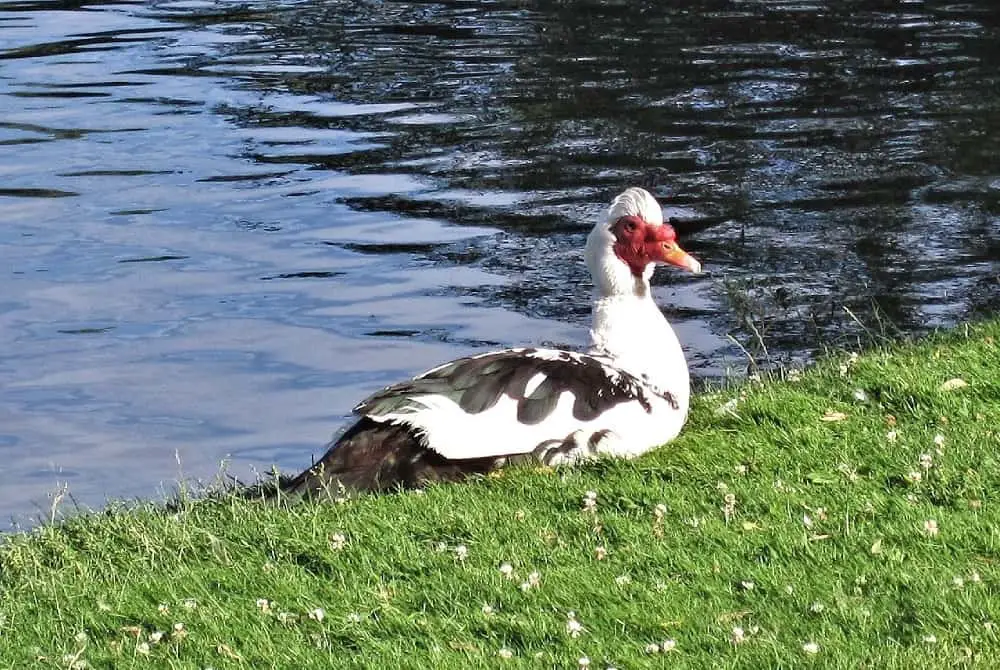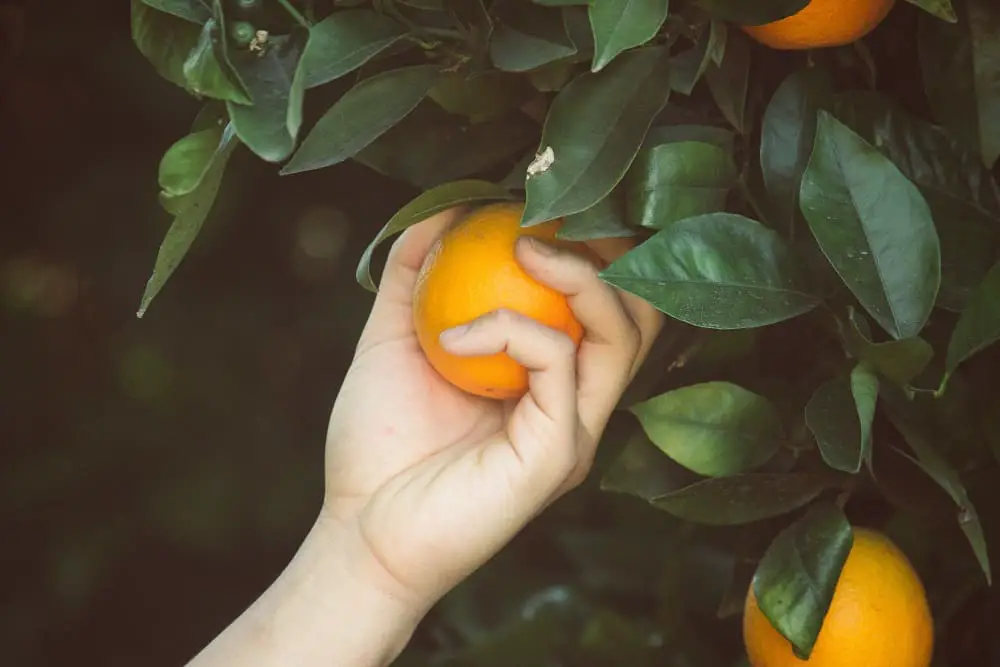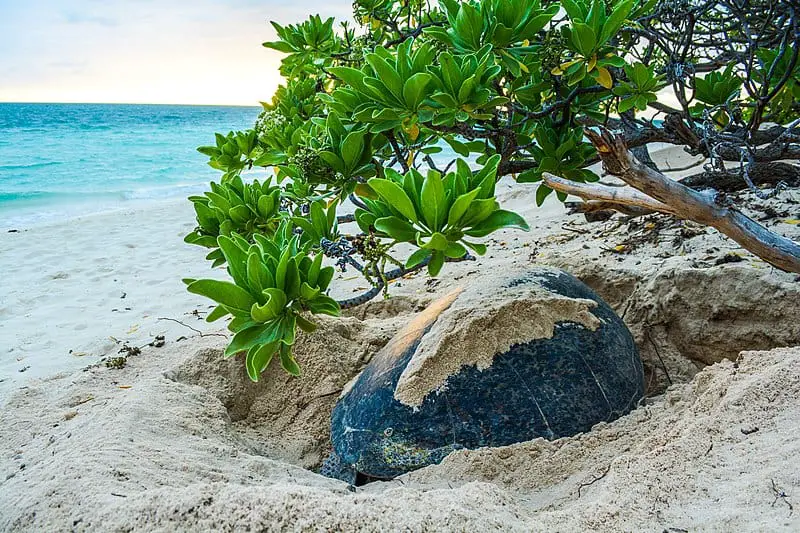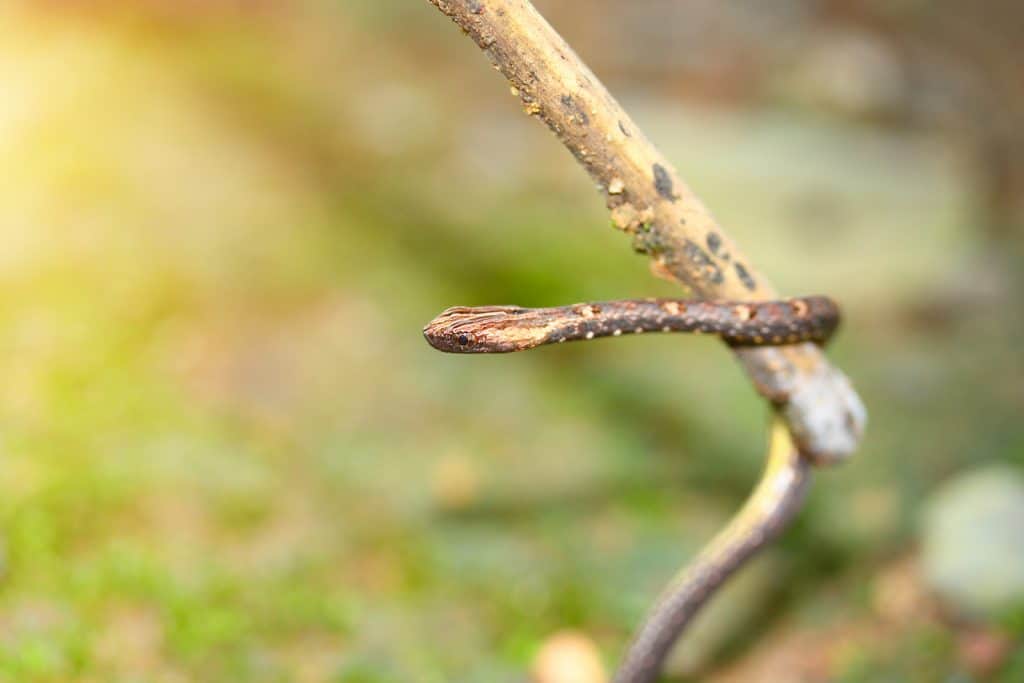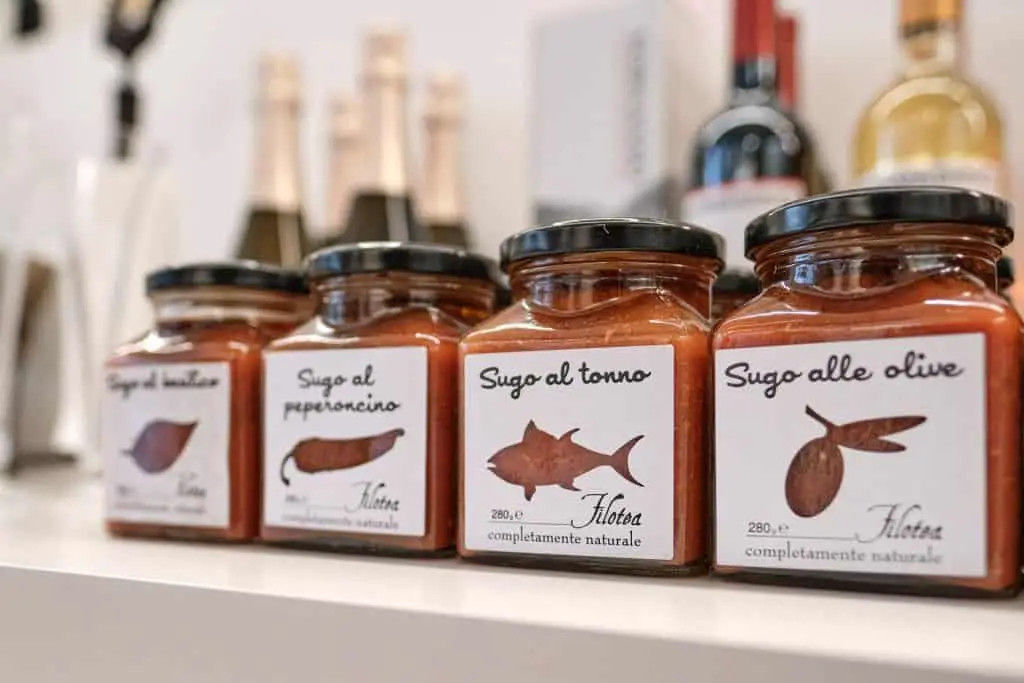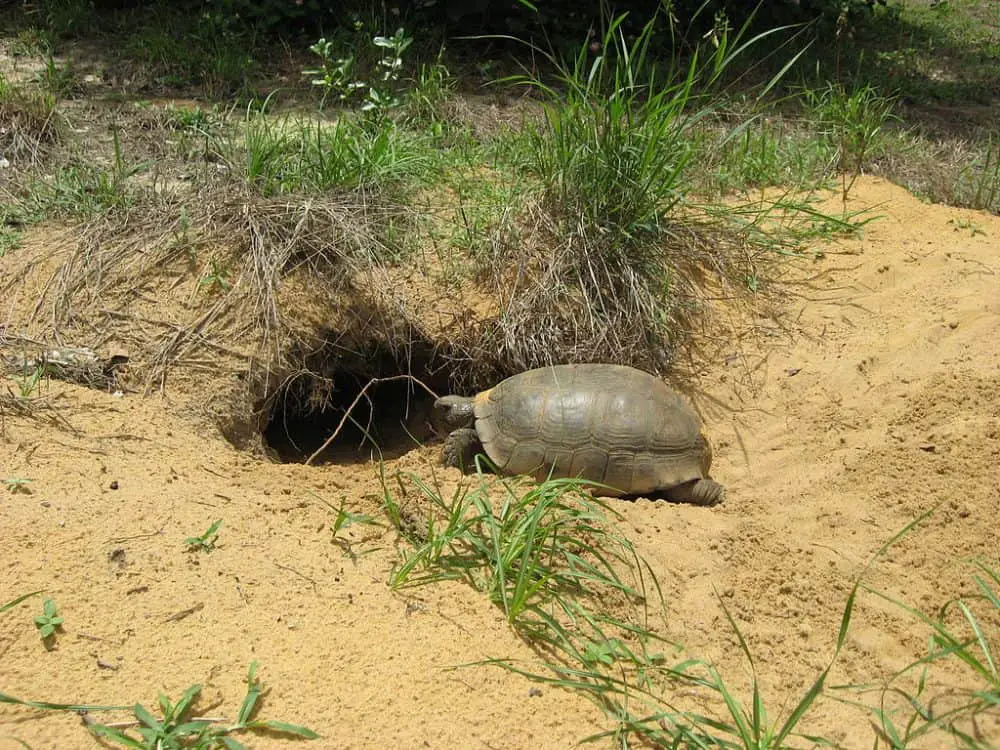Muscovy Ducks are a familiar sight throughout Florida. They have a distinctive look and unique behavior. These ducks, originally from Central and South America were introduced to Florida by people. They have become a popular part of Florida’s ecosystem.
Florida has a variety of birds, but none are more fascinating or unique than the Muscovy Duck. The Muscovy duck, with its striking appearance and unique behavior, has become a familiar sight in Florida, delighting both locals and visitors.
This post will explore the history, habitat, and human relationship of Muscovy Ducks in Florida. This blog is a great resource for anyone interested in these waterfowl.
We’ll cover how to identify these invasive species, how to treat them, and even how to control them. It’s not easy to live with these creatures, but with a little information, you can make the situation better. Follow these tips to get started.
Identifying Muscovy Ducks
Muscovy Ducks do not pose a threat to native habitats in Central or South America. They have however been introduced into other areas of the globe, such as North America, Europe, and Asia where they were not originally native. In some cases, they can have negative effects on local ecosystems.
Muscovy Ducks are reported to be competing with local waterfowl in some regions for food and nesting areas. This can negatively affect native species’ breeding success. Their droppings may also pollute water and cause damage to gardens and crops.
Muscovy Ducks can therefore be regarded as a potentially invasive species in places where they are introduced. It is important to remember that not every introduced species becomes invasive. The impact can also vary depending on local factors and environmental conditions.
Identifying muscovy ducks can be tricky, but it is possible. The duck’s coloration can help you determine whether you’re looking at a wild or domesticated bird.
Muscovy ducks have black skin and large white wing patches. They range in size from 66 to 84 centimeters in length and weigh about 1.1 to 4.1 kilograms.
Females are smaller than males, but they do have distinctive physical characteristics. Their colorful masks around their eyes and the wart-like spots on their heads make them easy to identify.
A Muscovy duck can be spotted in Florida if you know how to identify its recognizable plumage. This species lives in lakes, ponds, and forested swamps.
It is a prolific breeder, laying between eight and sixteen eggs per clutch. The eggs take about a month to hatch. The name “Muscovy” could be a reference to the Muscovy Company, which was established in London in 1555.
How Smart Are Muscovy Ducks?
Are Muscovy ducks smart? Many people wonder how these intelligent little creatures are. They are known for their rich red meat. Muscovy duck meat is similar to Wagyu beef steaks and is denser than other breeds.
Muscovy ducks can escape killing cones, processing equipment, and predators. However, they are not predator-proof. Here are some facts to keep in mind when buying a Muscovy duck.
The first question that comes to mind when looking at these creatures is how smart they are. They have been known to hiss instead of quack, and they fly very clumsily.
This type of duck has adapted well to the urban environment of Florida, where they live in urban parks, golf courses, and retention ponds. They are also extremely intelligent, so much so that the ARFF is regularly contacted by residents who are troubled by their presence in their yards.
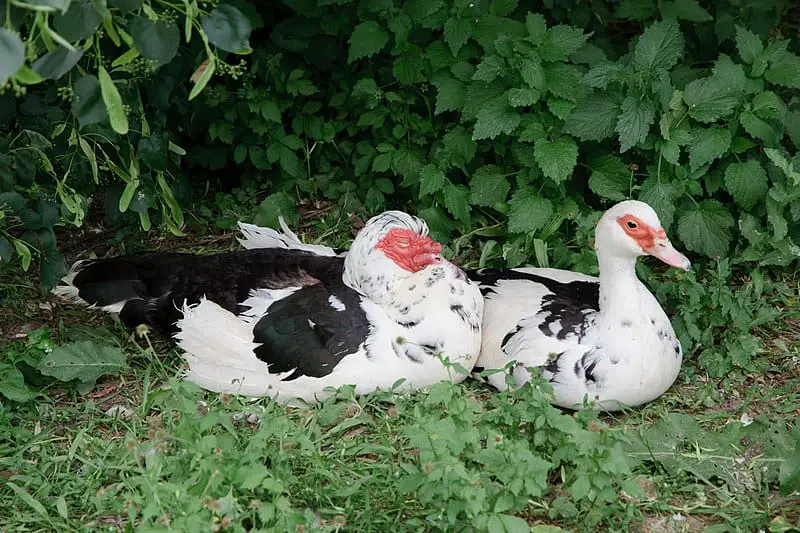
Another interesting fact about these birds is their social nature. They tend to swim with other breeds and members of their own species.
Those ducks do well with humans and have adapted to life in human homes. However, it is possible that they become lonely when separated from their flock and stop eating.
They may even be territorial and fight when threatened. If you’re curious, you can always ask them for advice.
The first thing that you should know about Muscovy ducks is their behavior. You can easily identify the sex of the ducklings as early as eight weeks old.
They are a very quiet breed, and they don’t speak very often. Males hiss loudly while females make a soft musical whimper. This characteristic is reflected in the way Muscovy ducks communicate with each other.
What Month Do Muscovy Ducks Lay Eggs?
A Canadian study found that Muscovy ducks can eat up to 30 times the amount of fly control materials used on crops. Interestingly enough, Muscovy ducks are relatively healthy and can eat layers and gamebird starters.
The best time to notice the egg-laying behavior of a Muscovy duck is when the hen is at her best. Normally, a Muscovy duck will lay four to seven eggs per clutch.
They will lay one egg per day, but they can also lay up to ten eggs at a time. Muscovy ducks lay eggs from March to October. Their egg-laying habits vary from year to year, but the first clutch is most likely to be in March, followed by the second.
If you’re curious about the egg-laying behavior of Muscovy ducks, it’s important to know that they lay between fifteen and eighteen white eggs a year.
In addition, if you provide them with a high-quality protein diet, they’ll lay plenty of eggs. You should remember, though, that their eggs are one-half the size of a hen’s, and are equally delicious. If you’re looking for the perfect pavlova, try using the duck eggs!
Understanding Muscovy Duck Behavior
When you go to a park where you can see a Muscovy duck, you need to be aware of its personality. The large, waterfowl is easily recognized by its bright red mask on its face and the wart-like growths on its neck.
Male Muscovies typically have a crest of feathers (called caruncles) above their beak and on their face. Females have a mask-like look around their eyes but aren’t as conspicuous.
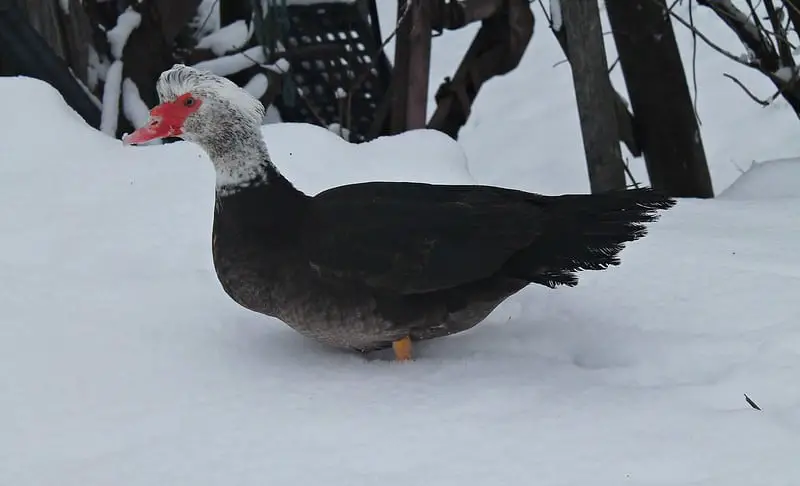
Muscovy ducks are not monogamous. However, they do establish a preference in a relationship. When they approach another Muscovy duck, the male will try to bring her down, grabbing the feathers on the back of her neck.
The female will then attempt to escape by yanking on the female’s feathers. In the end, the male will eventually mount her and she will try to defend her nest.
Controlling Muscovy Ducks
The control of muscovy ducks in Florida will be accomplished using a combination of baited traps and shooting. Baited traps will limit the number of non-native species impacted by the release, and the shooting conducted by a state agency will not harm other species.
However, some duck owners may not be able to avoid the negative consequences of muscovy duck control.
The removal of Muscovy ducks is an expensive process, and there are many risks associated with the birds. Not only can their droppings harm your water supplies, but they are also known carriers of avian influenza, which is lethal not only for ducks but also for humans.
Additionally, Muscovy ducks can destroy the beauty of your yard, resulting in a flooded yard full of excrement. Unless you are familiar with trapping muscovy ducks, it can be difficult to remove them.
If you do decide to use a trap, you should make sure that it is made with heavy-duty wire, so that it won’t rip open the fences or bury the ducks.
Once established, Muscovy ducks may not need to be removed from your property. They may move from one area to another during rainy seasons.
If you have a marshy yard or low-lying yard, they can help you reduce the mosquito population. Despite their small size, these creatures can suck up too many mosquitoes and disrupt your outdoor enjoyment.
Whether they are pests or not, many people enjoy watching Muscovy ducks and their baby ducklings. The waddling and hissing of the baby ducks are enjoyable and are part of nature.
What is the Best Food for Muscovy Ducks?
There are many foods that Muscovy ducks can eat, but their favorite food is still chicken feed. Ducks also like bugs, flies, and mosquitoes, so they can benefit from a diet high in protein and healthy fats.
Their diet also includes kitchen scraps, fish, and greens. Although they do not like to be handled, they do enjoy human company. Muscovy ducks are generally very protective of their owners.
Besides meat, Muscovy ducks can eat plants, slugs, and bugs. These ducks have even been known to hunt flying mosquitoes!
Their hunting posture involves flicking their necks back and forth to attack flying objects. Muscovy ducks are excellent for cleaning creeks and keeping grass and mice populations low. However, it is important to remember that they are picky eaters.
Although Muscovy ducks are relatively easy to raise, it is a good idea to purchase their meat as soon as possible. This way, you can ensure that they’re getting the nutrients they need to stay healthy.
Muscovy ducks are resistant to parasites and other diseases, so it’s worth looking into the diets they eat.
Muscovy ducks don’t typically require vaccinations, but you can consult with your vet to make sure your animals are protected.
Vaccinations and disease prevention are very important, and they are often unnecessary if your flock is small. If your Muscovy birds become sick, isolate them right away and get them treated. You should also quarantine newcomers for at least 30 days to eliminate the possibility of spreading disease.
While Muscovy ducks are known for being self-reliant, they still need daily care. Unlike chickens, Muscovies do not eat food supplements.
This can cause health issues and lead to thin eggshells. Some raisers buy commercial diets, while others make their own specialized diets.
Others offer unmedicated layer pellets. However, it is important to know that medicated feeds can lead to health problems in your Muscovy ducks.
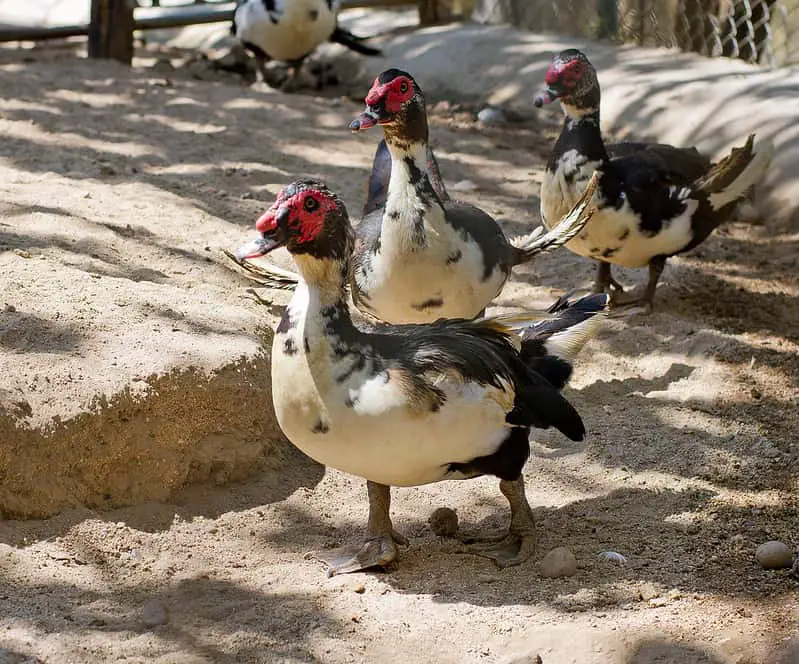
Is Muscovy Duck Poop Harmful?
This question might be on your mind: Is Muscovy duck poop harmful?
It could also be the reason your dog or cat ate their egg or was irritated by the smell of their droppings.
In addition, Muscovy ducks are known to breed in ponds where humans cannot enter them. So, why would you want to keep them in your pond?
Well, these ducks not only have high mortality rates but also poop which is toxic for humans and other animals.
Many people are concerned that these ducks could be dangerous to humans, but there’s no solid evidence to support this.
While ducks can’t transmit diseases to humans, some diseases are transmissible from duck to duck. Parvovirus and duck virus enteritis are two of these diseases, which can have a devastating effect on ducks.
But they are not harmful to humans. Instead, ducks are naturally resistant to most human diseases.
The best way to find out if a Muscovy duck’s poop is toxic is to examine it. Some foods are known to make poop toxic. Beetroot, for example, produces red poop.
Also, the amount of water the duck consumes is another factor. Foods that are water-rich will make poop watery while food that is high in protein will make it firm.
Although the FWC does not permit trapping, they do accept some forms of euthanasia. Pellet guns and carbon dioxide poisoning are two common methods for euthanizing Muscovy ducks.
Other methods, such as cervical dislocation, involve breaking a duck’s neck and spine. The FWC also allows the “humane” euthanizing of Muscovy ducks.
Although these ducks are widely known for their large size, the poop of a Muscovy duck may be dangerous for humans. Muscovy ducks are invasive in Florida, and the poop of these birds is known to contain toxins. However, it’s difficult to identify the exact source of the toxicity.
However, they may be found in urban and suburban areas. If you’re concerned, it’s advisable to get rid of Muscovy ducks before they start to harm your home or garden.
Moreover, it’s important to note any signs that accompany the diarrhea. If the symptoms are more severe or prolonged, call the vet to determine whether the animal is experiencing a disease or accidental poisoning.
It may be a sign of a disease or even a bacterial infection. It’s also a good idea to observe any sudden changes in the duck’s health. If the symptoms persist after a few weeks, you should consult a vet to confirm the case.
Although they prefer the outdoors, Muscovy ducks do eat chicken feed. Feed them 16% chicken layer feed and eight ounces of water a day. Avoid giving them Citrus fruits and spinach.
They might interfere with the absorption of calcium. White potatoes, Green Tomatoes, and Iceberg lettuce are all okay if given in small amounts. Ensure that the ducks do not eat anything with traces of these products.
Are Muscovy Ducks a Problem?
The question is, “Are Muscovy ducks a problem?” The answer is a resounding “yes.” But before we make such sweeping conclusions, we must first understand the true status of the species.
According to the FWC, muscovy ducks are an invasive species that have high breeding propensities. These ducks cannot be moved to other public lands without a permit.
If found on private property, they are typically euthanized. Nevertheless, this doesn’t mean the birds are harmless; there are many facts that make the species a problem in some areas and not in others.
Muscovy ducks have several negative aspects that make them unwelcome guests in a yard. They can ruin a yard and fill it with their excrement. The good news is that the removal of Muscovy ducks does not have to cost a lot of money.
If you are confident in your abilities, you can attempt to trap them yourself. However, keep in mind that catching a Muscovy duck in its nest requires a lot of practice.
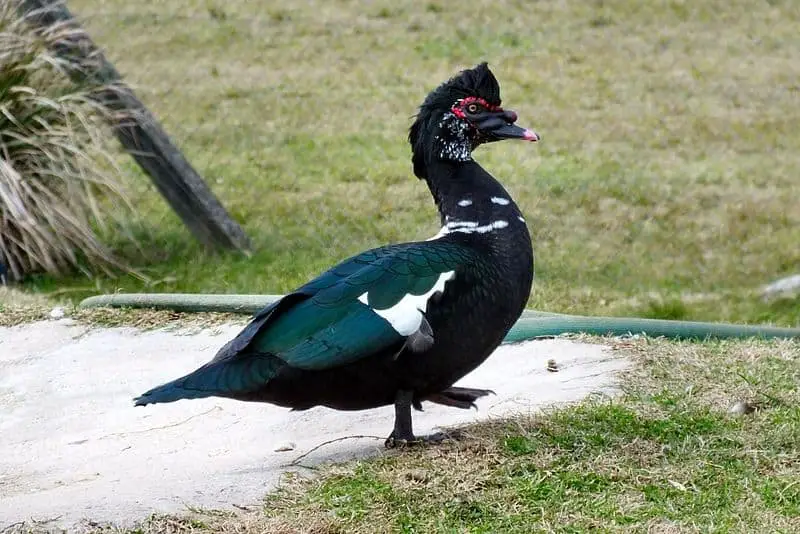
One way to eliminate Muscovy ducks from a yard is to install a quality pool cover. You can also check with local wildlife authorities to determine if Muscovy ducks are a problem.
A quality cover can help protect your yard from unwanted guests and protect your pool from damage. However, if you cannot afford a good cover for your pool, you might consider trapping them instead.
Though cute at first, Muscovy ducks are troublesome when they reach adulthood. Female Muscovy ducks can lay eggs without a male drake, but the eggs won’t hatch.
Interestingly, they are not really ducks at all, but South American waterfowl. Female Muscovy ducks are considered ugly, while males have large red wattles on their heads, like overgrown warts.
Muscovy ducks are notoriously territorial. They can easily invade private property and can weigh anywhere from three to 10 pounds.
While their breeding habits aren’t necessarily harmful, they may pose a nuisance if you don’t take the necessary steps to keep them away. If you’ve had enough of Muscovy ducks, you should consider hiring a wildlife control service to remove them completely.
While there are no studies proving that Muscovy ducks carry disease, they can infect people if they are close to them.
While Muscovy ducks are not likely to cause any harm to humans, their droppings are often unsanitary and unsightly.
Moreover, new Muscovy ducklings shouldn’t be handled by young children, the elderly, and immunocompromised people. This could transmit salmonella to humans.
What is the Lifespan of a Muscovy Duck?
A Muscovy duck typically lives for five to 12 years, although their lifespan can be shorter. The lifespan of a Muscovy duck depends on various factors including diet, environment, and shelter.
The lifespan of a Muscovy duck varies widely, but the life expectancy of female Muscovy ducks is slightly shorter than that of males.
They may live to as long as twenty years, but female ducks have shorter lifespans than drakes. That means female ducks may require more medical care and interventions throughout their lifespans. If you are planning to buy a Muscovy duck for exhibition purposes, you should know its lifespan.
Whether or not a Muscovy duck has a long life depends on several factors. Its environment, such as temperature, should be healthy and free of predators.
A healthy environment will also ensure that a Muscovy duck does not become a victim of diseases or other illnesses.
Where Do Muscovy Ducks Sleep at Night?
When nightfall falls, Muscovy Ducks require a place where they can sleep safely.
Muscovy Ducks are usually kept outdoors in enclosures such as sheds, coops, or pens. The structures are used to provide protection against predators and a safe place for ducks at night.
Some Muscovy Ducks sleep in trees. This is especially true if the ducks live close to bodies of water.
Muscovy Ducks generally prefer sleeping in trees or on roosts. Sleeping on the ground leaves them more vulnerable to predators. Muscovy Ducks are better protected from predators such as foxes and raccoons by sleeping higher up.
Muscovy Ducks don’t have a preference when it comes to their roosts. The Muscovy ducks will rest on any raised surface including poles, branches, and even the rafters of barns and sheds. It is important that the roost be stable enough to support the weight of ducks.
Muscovy Ducks tend to prefer to gather in large groups. It is part of their social nature that makes them feel secure and safe. They can keep warm by roosting with each other in the cold.
Not all Muscovy Ducks sleep at night. Others may choose to sleep on the floor, particularly if their young are nearby or they feel safe. Sleeping on the ground may not be ideal but it’s not a problem as long as they are protected from predators.
It is essential that you provide Muscovy Ducks with a secure and safe place to sleep at night. It can be as simple as a wooden roost or a branch of a tree, but it could also be something like a nesting container.
It is important that the roost be stable enough to support the weight of ducks, and also protect them against predators.
Keep the roost dry and clean to avoid the accumulation of bacteria and moisture, which could cause health issues for your ducks. Cleaning and changing bedding regularly can ensure that your ducks are sleeping in a healthy and safe environment.
It is important that you provide enough food and water for your Muscovy Ducks, as well as access to nature. They are very active and need plenty of space to roam around.
It is important to provide them with an environment that mimics the wild. This will keep them happy and healthy.
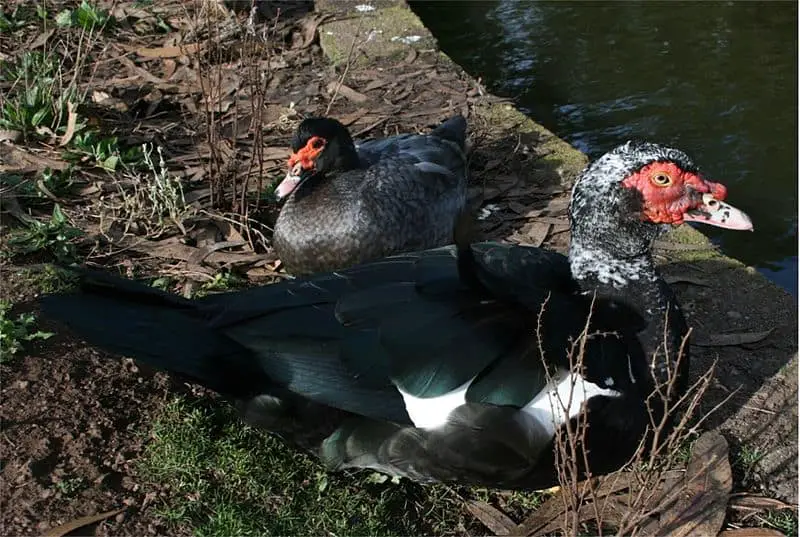
What Does it Mean When a Muscovy Duck Wags It’s Tail?
A Muscovy duck wags its tail as a way to communicate. While this behavior is common among ducks, it is also unique to this breed. Female Muscovies make soft trills or coos.
These sounds resemble fast-moving water or a stream tumbling over rocks. These sound a lot like a dove’s cooing but are much higher in volume. When they are agitated, female Muscovy ducks quack, similar to a dog’s chew toy.
The sound is not necessarily a warning, but merely an expression of frustration.
Ducks wiggle their tails for different reasons. They may wag their tails after they complete a difficult task, such as jumping off a platform. Another reason a duck wags its tail is that it feels satisfied with its accomplishments.
If a Muscovy duck wags its tail in excitement, it is because it has just accomplished something that posed a challenge.
Muscovy ducks do not usually form monogamous pairs, but they do indicate their preference. In the male Muscovy duck’s courtship ritual, he catches the female’s neck feathers and lowers her.
He then pushes her down to mount her. In addition to waggling its tail, Muscovy ducks also cluck and yawn.
The wagging of a Muscovy duck’s tail may indicate a number of different situations. Occasionally, it could indicate that the duck has wet feathers.
If this is the case, it is best to bathe it right away. Also, do not let the duck swim for longer than necessary. In general, ducks wag their tails in excitement when they have just been out for a swim.
In Florida, Muscovy Ducks have been a familiar sight for many years. They are now a major part of Florida’s wildlife. Not everyone sees these ducks the same. Others view them as an attractive sight, while some see them as nuisances.
Muscovy Ducks have been introduced in Florida since the 1960s. They are now found in several areas. Many people love to feed and interact with these friendly ducks.
Muscovy Ducks have their own problems. When they are threatened, the ducks may become aggressive and create an unsanitary environment in public places. They can also compete with local bird species for nesting and food, which could have adverse effects on the ecosystem.
Many people still welcome Muscovy Ducks in Florida despite these fears. Their friendly, curious nature makes them a popular part of Florida’s wildlife. The birds are easy to maintain and they can also be kept as a pet. This makes them very popular with backyard chicken enthusiasts.
To strike a balance between the enjoyment of Muscovy Ducks while mitigating any negative effects, Florida communities have adopted regulations regarding feeding and control. The regulations are designed to encourage responsible pet ownership and discourage excessive feeding. They also protect the environment.
The question as to whether Muscovy Ducks are in Florida a nuisance, or welcome sights is complex. They can be a nuisance in some situations but they also add a special and unique element to the wildlife of Florida.
Florida communities can enjoy the ducks’ presence and minimize their negative effects by weighing their benefits against their concerns.

